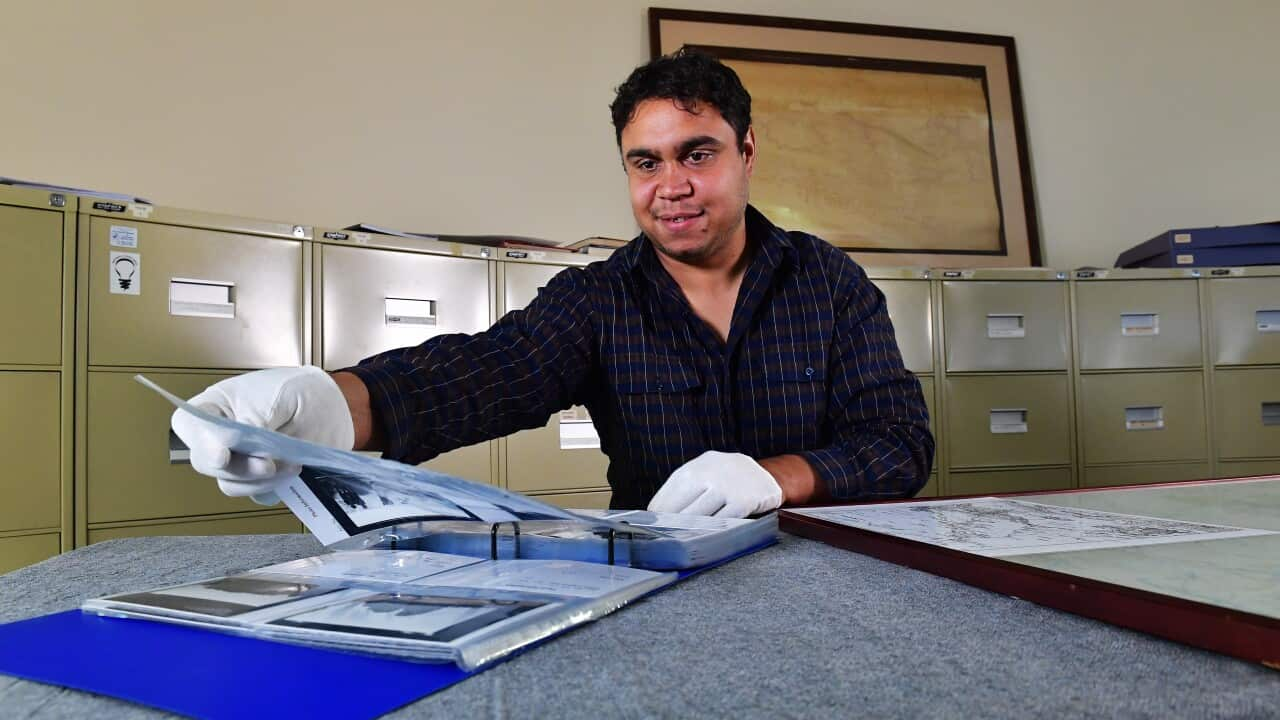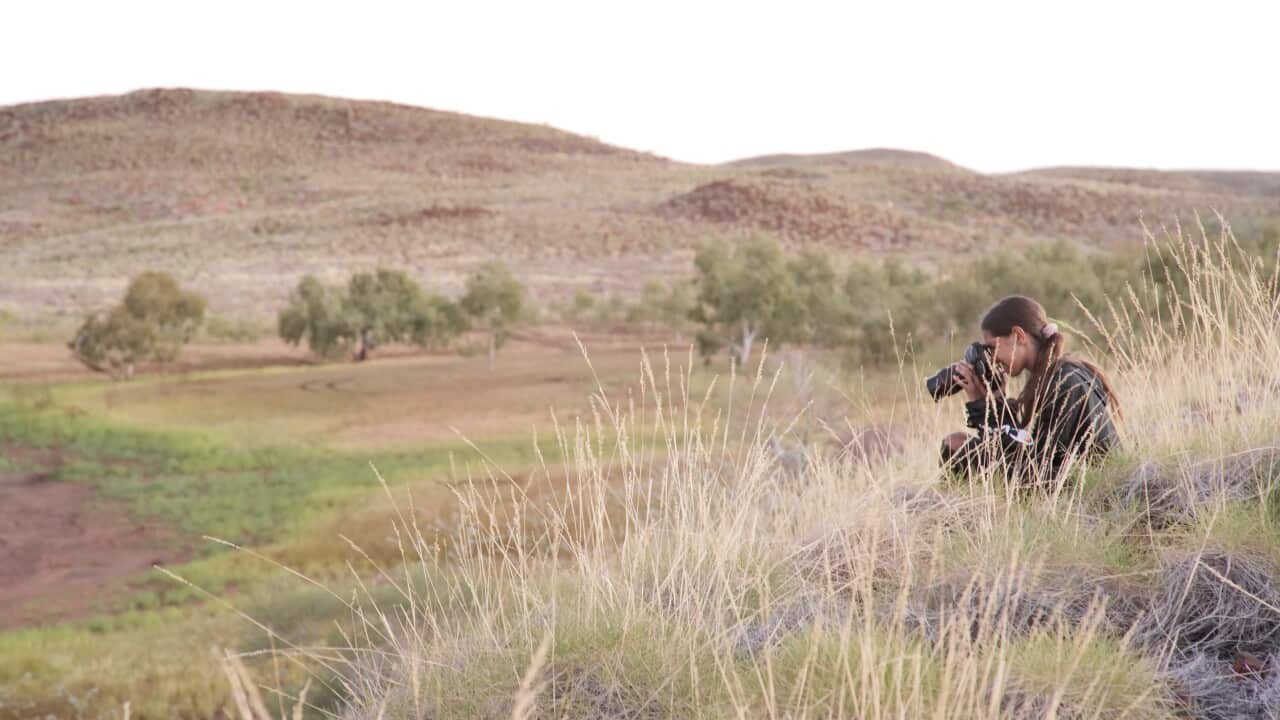Traditional Owners of Central Australia will be given digital access to film and audio recordings of their cultural practices in a new digital space, built by the National Film and Sound Archive.
The new studio will be located at the Strehlow Research Centre in the Museum of Central Australia in Alice Springs and will open on Thursday.
Professor Ted Strehlow worked with Aboriginal communities across Central Australia from 1932 to the mid-1970s.
Strehlow Research Centre Aboriginal Heritage Officer Franky Gorey said that senior men really like the studio because it's important to have access to this material and preserve it for future generations.
"Some of this knowledge hasn't been passed down to young people but now we have access to it to strengthen culture and keep it going," he said.
A significant portion of the collection relates to men's sacred and secret ceremonies.
The collection contains more than 400 reels of 16mm film and 1000 audio recordings, representing more than 800 ceremonial acts and 150 hours of language, stories and songs.
Digitally preserving the audio and film recordings allow Central Australian Aboriginal communities to revitalise and continue their cultural practices and traditional languages.
Chief executive of the National Film and Sound Archive Patrick McIntyre said the unique interaction between Indigenous knowledge and 21st-century technology is important.
"Preservation and access are critical issues for Indigenous communities and archives all over the world," said Mr McIntyre.
Without the digitalisation of the collection, Traditional Owners face the risk of losing access to their cultural knowledge including ceremony, songs and other important cultural practices recorded by Strehlow.
Chair of the Strehlow Research Board and proud Alyawarre man, Michael Liddle said the use of technology is critical to preserve cultural practices from a variety of language groups in Central Australia, deepening connection to Country.
"It is so exciting for all of the Strehlow Research Centre heritage team to reach this important milestone where senior men can access the material visually and to archive these recordings for future generations to access," Mr Liddle said.
The studio space is being built by the National Film and Sound Archive of Australia, which will give on country access to traditional owners in a safe and secure environment to listen and view the material.
Access to the collection is limited to Traditional Owners and to people who have been given consent and approval to view the collection by them.














